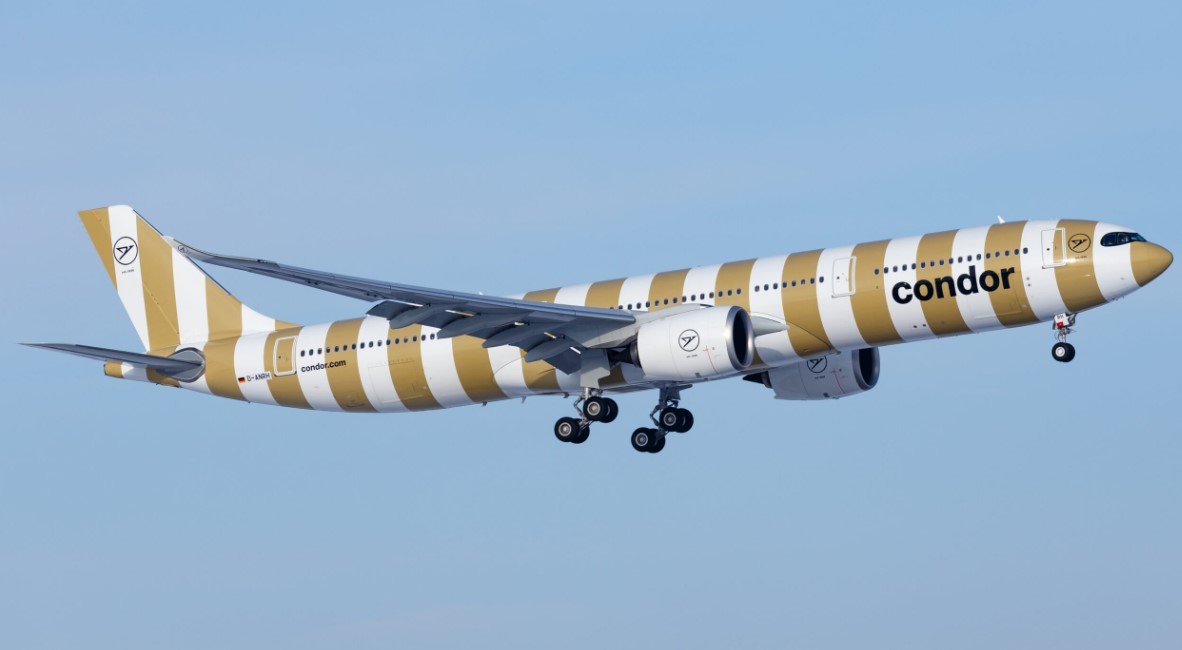Condor’s newest Airbus A330neo, D-ANRB, has been grounded for repairs after it was damaged by a loading vehicle at Frankfurt Airport. No passengers were onboard during the incident, and no injuries were reported among the crew.
The incident occurred on Wednesday, September 27, 2023, when the aircraft was parked at the gate and being prepared for its next flight. A high-loading vehicle that was bringing pallets to be loaded in the cargo compartment hit the aircraft laterally near the cargo door, causing a significant hole in the fuselage.
The damage is reported to be above the aircraft’s sensors, close to the cargo door. Images shared on social media showed the sizable gash on the aircraft’s fuselage. Frankfurt Airport has cited a technical defect as the most likely cause of the collision.

The aircraft was delivered earlier this month
The A330neo involved in the incident was delivered to Condor on September 2, 2023. It is one of four A330neos that Condor has ordered to replace its aging Boeing 767 fleet. The A330neo is a more fuel-efficient and environmentally friendly version of the popular A330 wide-body jet, with new engines, wingtips, and cabin features.
Condor is a German leisure airline that operates flights to holiday destinations around the world. It is currently undergoing a restructuring process after its former parent company, Thomas Cook, collapsed in 2019. The airline has received state aid and is looking for new investors to secure its future.
Ground-based incidents are costly and frequent
According to research by the International Air Transport Association (IATA), around $5 billion in damages are caused by ground-based incidents each year, with the figure predicted to balloon over the next 15 years to $9.7 billion. These incidents include collisions between aircraft and ground vehicles, equipment, or infrastructure, as well as injuries or fatalities of ground personnel.
Ground-based incidents are often caused by human error, poor communication, or inadequate training. They can result in delays, cancellations, or diversions of flights, as well as repair costs and compensation claims. They can also pose safety risks for passengers and crew, as well as environmental hazards due to fuel leaks or fire.
To prevent or reduce ground-based incidents, IATA recommends investing in anti-collision technology for ground support equipment, improving coordination and communication between ground handlers and flight crews, and enhancing training and safety culture for ground personnel.
